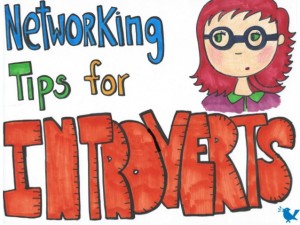Internship or job search can be a very stressful process, and it requires an incredible amount of energy and faith, especially when you have done everything you can to pursue an opportunity and you still don’t get it. Well, your attitude can make a big difference in situations like this.
Thank yourself for your hard work.
It’s normal to feel disheartened, and sometimes even angry or lose faith in yourself when you are rejected. However there can be all sorts of different reasons why you are not selected. You might not have conducted yourself most successfully in the interview. They might be looking for some particular skills which you don’t possess yet. It can be just that you don’t seem to fit with certain expectations (e.g. job might require frequent travel but you don’t seem to be able/willing to do that) or there are just too many highly qualified candidates like you. There can also be internal candidates who might have done the job and known the company already (for example their summer interns), etc. Regardless of the reason, keep in mind that you already won by getting on the short list (just imagine how many applications they might have received). So thank yourself for the excellent job you have done to stand out from the crowd. Last but not least, be thankful that you have had the opportunity to thoroughly examine your skills, learn some great insights on certain job requirements and interview skills, or develop some valuable connections that can be beneficial for your professional development in the long run.
Show appreciation to your interviewers and all those who have supported you in the search process.
It can be hard to be thankful when you don’t get what you want. Yet, you are interviewed because people are interested in you, and you have been given the opportunity to present your qualifications and passion. An interview, especially a panel one requires a lot of arrangement and time. A gracious attitude towards rejection says a lot about your personalities and can open up future opportunities – you never know when you can cross paths with any of the interviewers again or there might be other opportunities that can be a better fit for you in the same organization in the future.
Get feedback from the hiring manager or interviewers.
Every interview is an opportunity to examine your strengths and weaknesses, as well as your fit for the type of jobs and/or organizations. If you don’t get an explanation regarding why you are not selected, take the initiative to get some feedback from the hiring manager, so that you can be better prepared for future interviews. Nobody likes to deliver bad news; most hiring managers don’t feel comfortable giving feedback to those that they reject. So you have to be really genuine when you make the request, and you want to make it clear that all you need is some feedback on your interview skills and what you can do to make yourself a stronger candidate for future opportunities in the same organization.
Be positive and have faith in yourself.
It’s normal to feel discouraged when you are rejected. If you do seem to be a great fit from all aspects and you still don’t get the job, remember you can always find a similar job with another organization. If you don’t conduct yourself most successfully in the interview, you’ve learned a great lesson and you will be better in future interviews. If you don’t currently own some skills that are key to the job, you will figure out what your next steps should be. Most importantly, only you know best what you are capable of. You might be rejected several times, but you don’t want to give up if you believe deep down in your heart you will be great in that field. You are always your strongest advocate.


